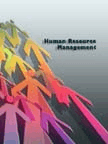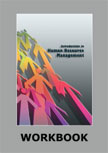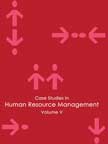Southwest Airlines Act II - An Airline in Trouble?
|
|
ICMR HOME | Case Studies Collection
Case Details:
Case Code : HROB061
Case Length : 13 Pages
Period : 2001 - 2004
Pub Date : 2004
Teaching Note :Not Available
Organization : Southwest Airlines
Industry : Aviation
Countries : USA
To download Southwest Airlines Act II - An Airline in Trouble case study
(Case Code: HROB061) click on the button below, and select the case from the list of available cases:

Price:
For delivery in electronic format: Rs. 400;
For delivery through courier (within India): Rs. 400 + Rs. 25 for Shipping & Handling Charges
» Human Resource and Organization Behavior Case Studies
» HRM Short Case Studies
» View Detailed Pricing Info
» How To Order This Case
» Business Case Studies
» Area Specific Case Studies
» Industry Wise Case Studies
» Company Wise Case Studies

Please note:
This case study was compiled from published sources, and is intended to be used as a basis for class discussion. It is not intended to illustrate either effective or ineffective handling of a management situation. Nor is it a primary information source.
Chat with us

Please leave your feedback

|
|




<< Previous
CEO Resigns Contd...
|
Southwest was the pioneer of low cost airlines (Refer Exhibit-I for features of
low cost airlines). It was the first time in its history that the airline had
experienced major labor problems.
Otherwise, although Southwest had the highest percentage of unionized employees
in the industry (about 85 per cent of its employees belonged to unions),
relations between the employees and the management were always positive and
cooperative.
The company had also experienced only one strike since its launch in 1971.
|

|
Just before Parker's resignation, Southwest had announced that its second
quarter profits for 2004 would fall below expectations by 54 per cent,
although it was the 53rd profitable quarter in a row for the airline
(Southwest was also the only airline in the industry to post profits every
year since 1973.)
The fall in profits was assigned to increased labor costs
and rising fuel prices. However, many analysts believed that the underlying
reason behind all of Southwest's problems was that the culture, for which
the airline was famed, was changing.
|
|
Background
In 1966, Kelleher (who was a lawyer) and Rollin King (King) a San
Antonio entrepreneur who owned a small commuter air service
conceptualized a low cost airline that would provide the best
service with the lowest fares for short-haul, frequent-flying and
point-to-point 'non-interlining'6 travelers. King's banker, John
Parker, conducted the feasibility study for the project and declared
that it had potential. The airline was initially called Air
Southwest Co., but the name was changed in 1967 to Southwest
Airlines Co. |
The trio decided to commence operations in the state of
Texas, connecting Houston, Dallas and San Antonio (which formed the 'Golden
Triangle' of Texas).
These cities were growing rapidly, and were too far apart for travelers to
commute conveniently by rail or road. With other carriers pricing their tickets
very high, making them unaffordable to most Texans, Southwest sensed an
attractive business opportunity.
Kelleher applied for the incorporation of the company in March 1967. On February
20, 1968, Southwest received permission from the Texas Aeronautics Commission (TAC)
to operate across the three cities.
Immediately thereafter, the Trial court restrained the TAC's permission in
response to a petition moved by other intrastate airline operators Braniff,
Trans Texas, and Continental.
After an unsuccessful appeal to the State Court, Southwest obtained its
certificate for operation after clearance from the Texas Supreme Court...
Excerpts >>
|
|









